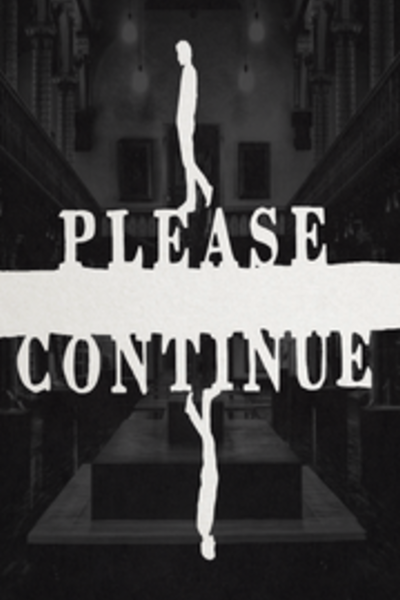
Critic Reviews (7)
“'Please Continue,' Frank Basloe’s relentlessly thought-provoking fictionalized study of the people involved with the experiments, is on the stage of the Ensemble Studio Theater. And it’s absolutely gripping...This rock-solid production takes us back decisively with political dialogue and pop music, but most of all with eight rich, lived-in performances and William Carden’s quietly commanding direction."
Read more
"Frank Basloe’s earnest but plodding 'Please Continue' saddles a sketchy critique of Milgram’s methods with an unsubtle B plot about conformity...This is still culturally potent stuff: the dark side of Mad Men and harbinger of our desensitized digital times. Unfortunately, Basloe’s account is slow-moving, flat-footed and telegraphs its themes a mile away. You might welcome a jolt or two to stay engaged."
Read more
"A science-minded drama hampered by an awkward construction concept...Two complicated stories are pruned of their most provocative and troubling details in order to make them fit the playwright's prearranged pattern, an approach that sells everybody short…A lot of disturbing ideas are raised in 'Please Continue,' only to get buried under a lot of talk. The result is something like a dull graduate seminar. This is a play that should wound; instead, it feels like homework."
Read more
"The relationship between the two plots is largely conceptual, but the very different issues and stakes in the two stories weaken this connection. The ethics of scientific experimentation are a meaty conundrum that the play ponders deeply and thoughtfully...One thing that does unite the two stories is the strength of the ensemble's acting...The play can be a bit slow or repetitive at times, but Carden's considerate direction yields enough emotional charge to keep you invested throughout."
Read more
"These dual storylines tackle the various aspects of cruelty in conformity with considerable intelligence...Subtle humor is carefully allocated while acutely written dialogue and a smart ensemble cast play with the topics of doubt and discovery with powerful sensitivity. Director Carden gracefully draws humanity from self-analysis and poignancy from complexity. An ambitious undertaking....Its thought-provoking results deserve further investigation. A must see."
Read more
"If there's a small gap in the script, it's the one-dimensional - okay, two-dimensional - depiction of Milgram...Though Basloe includes a few dry moments during his two acts, he's written a play that not only starts intermission debates but will also keep them going long after the last fade-out. And while his finale is brief and low-key, it's strong…Under Carden's direction, 'Please Continue' is possibly receiving its sleekest EST production yet. The ensemble acting is first-rate."
Read more
"Rather than focusing on this experimental result explicitly, 'Please Continue' takes the audience into the minds of the teacher, learner, and experimenter, revealing the turmoil within each. While Basloe’s script deviates from actual events, it does so in service of a greater purpose—to humanize the emotions of all three participants."
Read more





